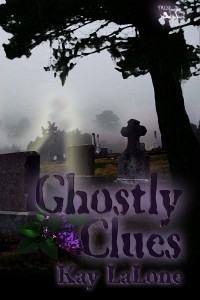Please welcome fellow Muser Tammy Lowe and her tween adventure The Acadian Secret to the blog today.
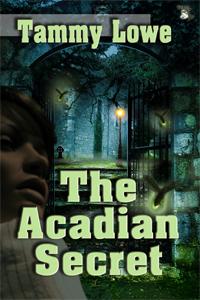 Thanks for having me on your blog Katie.
Thanks for having me on your blog Katie.
What made you want to become a writer?
Oh, this will no doubt illustrate what a dork I am.
As a kid, I loved to read books and watch shows like Little House on the Prairie and Anne of Green Gables. I loved anything set in the “olden days”.
When I was about ten years old, I began to wonder about time travel. My biggest wish was that I’d end up back in the pioneer era. I wanted to go and hang out with spoiled Nellie Olsen. I don’t remember why I wished for Nellie over Laura Ingalls, but I think it had something to do with the fact that her parents owned the candy shop.
I had it all figured out. I didn’t want to live in the 18th or 19th century; I’d miss my family too much. And I can’t live without modern comforts. I wanted the freedom to travel back and forth through time.
My wish to time travel was so strong; I even dressed the part, as much as I could, without raising anyone’s suspicions. I wore dresses to school every day, when all my friends wore jeans and t-shirts. I had to be prepared just in case it worked and I was whisked through time. That summer, I even begged my mom to buy me a bonnet. She did. I wore that white bonnet everywhere. If I ended up in Walnut Grove or Avonlea, I was prepared.
By the sixth grade I was old enough to realize that time travel probably wasn’t going to be a reality for me, so I decided when I grew up, I’d write a story about a girl who could travel back and forth through time.
What books had the most influence on you while you were growing up?
I remember reading Judy Blume books under the blankets with a flashlight, well past my bedtime. I felt like such an adult as I read, Are You There God? It’s Me Margaret.
So many authors influenced me when I was a young girl, from Roald Dahl and L.M. Montgomery to Stephen King and Sidney Sheldon.
If you were stranded on a desert island and could only bring two books and one movie, what would you bring?
Easy question! My two books would be Anne of Green Gables and Jane Eyre. The movie would be The Sound of Music.
And, if you weren’t peeking…I’d try and sneak in a copy of The Hunger Games too.
What is your favorite part of the writing process? What is your least favorite part?
The first draft is my least favourite part of the writing process. I find it hard trying to get the ideas out of my head and onto the page. I love to go back and polish it up in the editing stages.
What is the single best piece of advice you have for aspiring authors?
When you “think” you are finished your novel, put it away for at least six weeks and forget about it. When the time comes to take it out again, sit back and re-read the entire manuscript. Take notes. You will see a million mistakes and plot holes. Everything that isn’t working will jump out at you. It will be a cringe-worthy read, but you’ll be glad you put it away instead of sending it out.
If you could have one superpower, what would it be?
I’d love to be able to time travel.
And fly.
And have an invisibility cloak.
And…oh, just one? *grin*
What is something funny/weird/exceptional about yourself that you don’t normally share with others in an interview?
In a scene out of a rom-com, I was on a date with my boyfriend (who is now my husband). One summer afternoon, he took me out on his boat and down the Niagara River. We stopped for a romantic little lunch on the patio of a restaurant overlooking the water.
He tied his boat up to the dock, held out his hand and helped me climb out. We walked up to the patio, took a seat, and ordered lunch. Everything was perfect.
Little did we know there was police surveillance on the fancy boat we had parked next to.
And little did we know police thought WE had just walked off of that boat.
So, we are enjoying lunch, when I clue in that all around us, something is going on. I watch unmarked police cars pull up. They are looking at the boats. They are looking up at us. I then go into full panic mode as I realize they are doing a stake-out on us!
The way we were seated, I was watching it all unfold, but my boyfriend had his back to it. Not seeing what was going on, he of course thinks I’m completely off my rocker.
Crazy new girlfriend alert!
So, I have to convince him that this is all true. I’m not nuts and he needs to go and fix the situation. I’m shaking like a leaf and in tears. My boyfriend walks down to where the police officers are and returns about five minutes later.
Yup. I was right. They were doing a stake-out on us, thinking we arrived on the other boat.
We finished our meal and left. We have been married for twenty years now, but that was probably our most memorable lunch date.
The Acadian Secret blurb:
Elisabeth London is keeping her new friends a secret from her parents. Not only do they live on the other side of the world in the Scottish Highlands, they lived more than three hundred and fifty years ago. Her mom and dad would never allow her to go gallivanting about seventeenth century Scotland. They won’t even let her go to the mall by herself yet.
Twelve-year-old Elisabeth is old enough to know there is no such thing as magic, but when her quartz crystal necklace has the power to transport her back and forth in time, she no longer knows what to think. The only thing she is certain of is that she loves spending carefree days with Quinton, the mischievous nephew of a highland warrior, and sassy little Fiona, a farmer’s daughter.
However, Elisabeth’s adventures take a deadly turn when she is charged with witchcraft. At a time and place in history when witch-hunts were common, those found guilty were executed, children included. Elisabeth must race to find her way back home, while trying to stay one step ahead of the witch-hunter determined to see her burned at the stake.
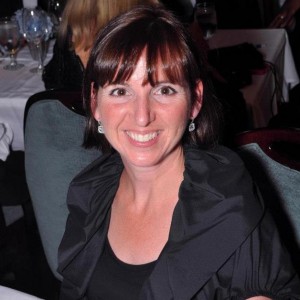 A little more about the author:
A little more about the author:
When she isn’t writing, you will either find Tammy Lowe surrounded by little children and covered in glitter and glue, or on some grand adventure: inside an Egyptian pyramid, twirling on an Alp or climbing the Great Wall of China. She’s part Mary Poppins, part Indiana Jones.
Tammy lives in Cambridge, Ontario with her husband and their teenage son. Find her at www.tammylowe.com and her book at the MuseItUp bookstore.
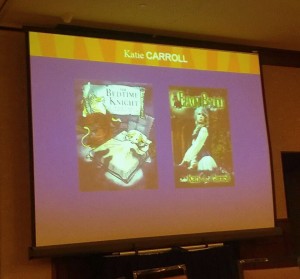
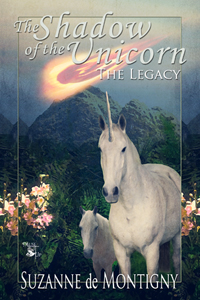

 Can a Reluctant Reader be a Decent Writer?
Can a Reluctant Reader be a Decent Writer?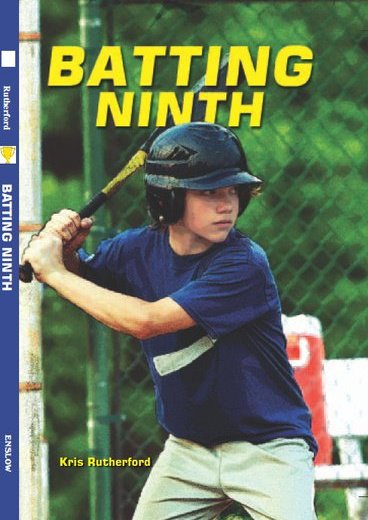 About the Author:
About the Author:

